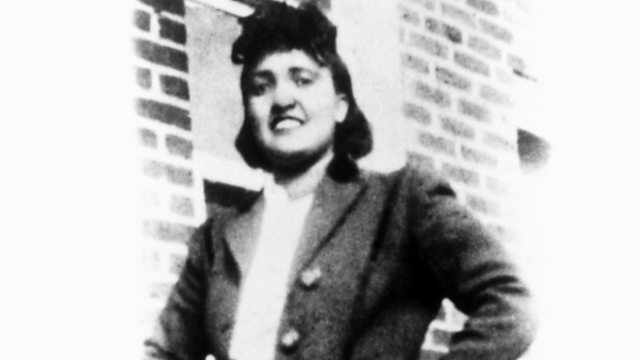The legacy of Henrietta Lacks
Henrietta Lacks died in 1951 from a virulent cervical cancer, but her cells changed medical history, contributing to ground breaking vaccines and treatments.
Henrietta Lacks died in 1951 from a virulent cervical cancer. A sample of those cancer cells was taken at the time, and the way they behave has changed medical science forever, contributing to everything from the polio vaccine to drugs for Parkinson’s and Alzheimer’s disease. As the WHO give a posthumous award, Claudia discusses how the Henrietta Lacks legacy raises issues of global health equity.
Plus with a Malaria Vaccine given a historic green light by the WHO to protect children in Africa, what are the distribution difficulties in countries which carry the greatest burden of disease?
And what’s behind the low rate of Covid-19 vaccinations in Taiwan? We hear from one resident about why she’s chosen to have a home-grown Medigen vaccine which hasn’t yet completed all its clinical trials – and another who wants to wait for an alternative. Scientists say that trials about to start in Paraguay should show whether it stimulates enough immunity to protect people in the way the AstraZeneca vaccine does.
Presenter: Claudia Hammond
Producer: Erika Wright
(Picture: Henrietta Lacks, after whom HeLa cells are named, standing outside her home in Baltimore, USA. Photo credit: Getty Images.)
Last on
More episodes
Previous
Next
Broadcasts
- Wed 13 Oct 2021 19:32GMT����ý World Service
- Thu 14 Oct 2021 03:32GMT����ý World Service Australasia, South Asia & East Asia only
- Thu 14 Oct 2021 04:32GMT����ý World Service Americas and the Caribbean
- Thu 14 Oct 2021 08:32GMT����ý World Service
- Thu 14 Oct 2021 12:32GMT����ý World Service except East and Southern Africa, East Asia, South Asia & West and Central Africa
- Sat 16 Oct 2021 01:32GMT����ý World Service News Internet
- Sun 17 Oct 2021 01:32GMT����ý World Service Online, UK DAB/Freeview & Europe and the Middle East only
Podcast
-
![]()
Health Check
Health issues and medical breakthroughs from around the world.


